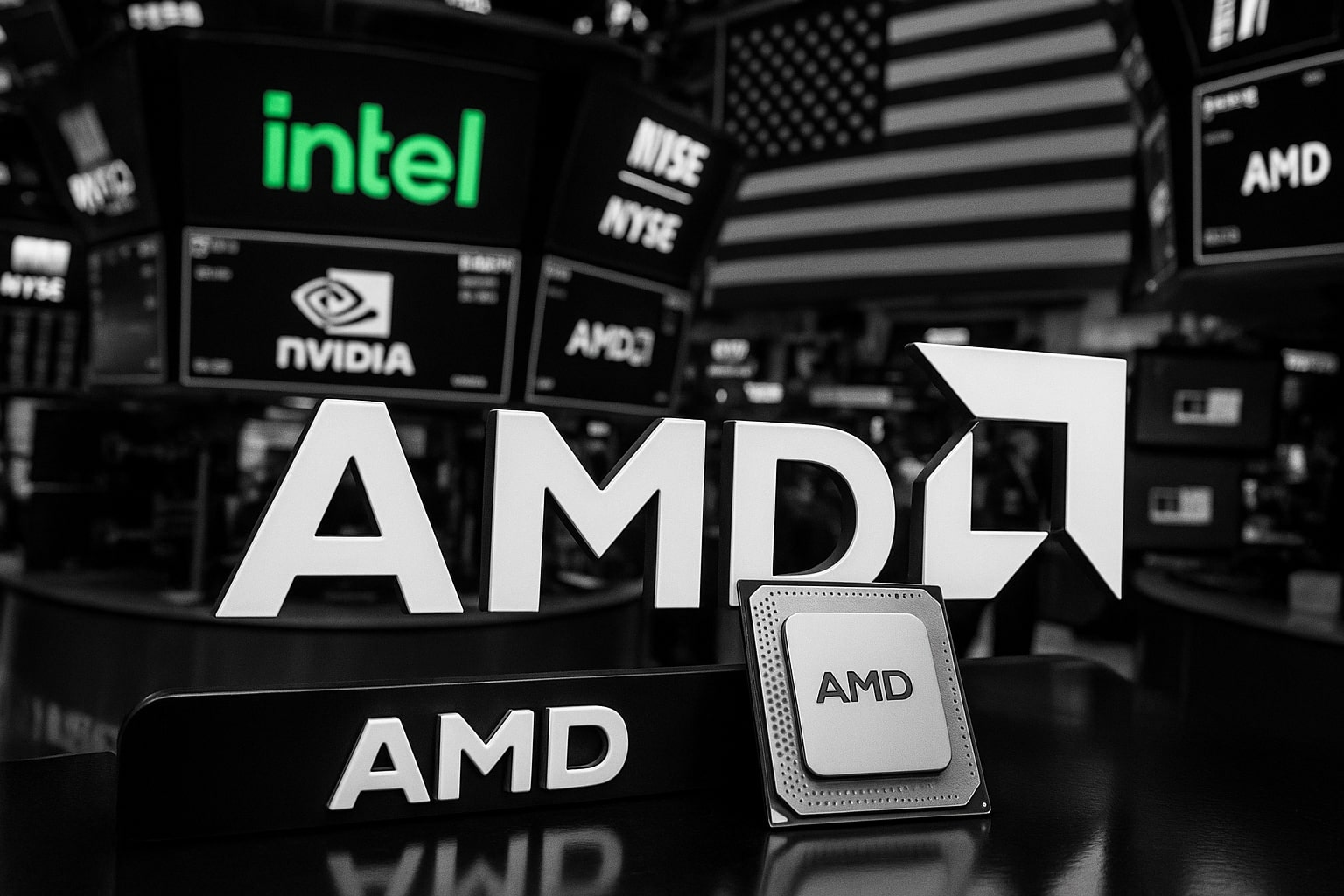
Microsoft (NASDAQ: MSFT): Stock Price Soars Amid AI Expansion and Cloud Leadership
Microsoft’s Strategic AI Investments and Cloud Growth Push Stock Price Higher – What This Means for Investors | That's TradingNEWS
Microsoft’s (NASDAQ: MSFT) Evolution in the Cloud Era
Over the last decade, Microsoft (NASDAQ: MSFT) has transformed from a company that was underperforming its FAANG peers to becoming one of the most powerful players in the technology sector. The turning point came in 2014 when Satya Nadella took over as CEO, and the company pivoted to focus heavily on cloud services. Since then, Microsoft’s stock has skyrocketed by over 1,000%, outperforming Amazon (AMZN) and remaining competitive with Apple (AAPL).
However, the road to dominance was far from smooth. Microsoft struggled significantly during the dot-com bubble and even more so during the 2008 financial crisis. While Amazon and Apple surged, returning 657.9% and 5150% respectively during this period, Microsoft managed a modest 37% return.
Azure: The Backbone of Microsoft’s Growth
Since Nadella’s leadership, Microsoft's cloud platform Azure has been a focal point for growth. Azure’s revenue is now at an annualized run rate of approximately $62 billion, trailing Amazon Web Services (AWS) at $105 billion, but with a projected path toward $200 billion by 2028.
A critical driver for Azure's growth is its focus on enterprise cloud solutions. By 2024, Microsoft had captured 85% of the Fortune 500 market, with most running on Azure. Its hybrid cloud strategy, combining on-premise, private, and public clouds, enabled it to retain enterprise clients as they transitioned to cloud environments.
More recently, Microsoft restructured its reporting to allow clearer comparisons between Azure and AWS, highlighting that Azure's 2024 growth rate hit 35% in constant currency, driven largely by artificial intelligence (AI) services.
AI Integration Driving Growth in Azure
Azure’s AI capabilities have been pivotal in its growth. In FY2023, AI services contributed 8 points to Azure’s growth, and by FY2024, this contribution increased to 11 points. The AI integration extends across Microsoft's product suite, catalyzed by its investment in OpenAI and the development of Copilot, which is being integrated across products such as Microsoft 365, GitHub, and Dynamics.
Azure AI now supports over 60,000 customers, a nearly 60% year-over-year growth. This strong demand, combined with Microsoft's challenges around AI capacity constraints, points to a continued bullish trajectory for Azure in the coming years.
Azure's AI-driven capabilities make it stand out from competitors like AWS and Google Cloud, both of which have not reported specific AI revenue contributions. Microsoft’s transparency in reporting AI growth and its leading enterprise adoption indicate the potential for further acceleration.
Copilot and AI Integration Across Microsoft Ecosystem
One of the standout successes for Microsoft in the AI space is Copilot, which integrates OpenAI's GPT models into Microsoft’s vast product ecosystem. Copilot has been integrated into tools like Word, Excel, Teams, and PowerPoint, enabling AI-assisted productivity solutions that boost efficiency for both enterprise and consumer markets.
GitHub Copilot, which is widely used by developers, has accounted for 40% of GitHub's revenue growth, growing to an annual recurring revenue of $2 billion. As of the latest quarter, GitHub Copilot had been adopted by over 77,000 companies, with a 180% year-over-year growth.
Additionally, Copilot for Microsoft 365 has seen rapid adoption, with usage nearly doubling quarter-over-quarter. With over 400 million 365 Commercial customers and 78.4 million consumer subscribers, Microsoft has positioned itself to leverage AI for a broad range of applications, making AI an integral part of daily workflows across its product suite.
Gaming and Personal Computing: Beyond the Cloud
Though Azure and AI services dominate Microsoft’s growth narrative, its More Personal Computing segment remains robust, particularly in the gaming sector. Microsoft's gaming revenue surged by 39% in 2024, largely driven by the acquisition of Activision Blizzard, which boosted Xbox content and services revenue by 50%.
Microsoft’s Windows platform, with a 72.3% market share in desktops and laptops, is further integrating AI capabilities. The recent launch of AI PCs with Snapdragon X Elite processors marks a pivotal shift in the PC market. These AI-enhanced PCs are projected to grow at a 44% CAGR from 2024 to 2028, and Microsoft's Copilot+ for Windows is likely to become ubiquitous across these devices.
Capital Expenditure and Strategic Investments in AI
Microsoft's aggressive capital expenditure (capex) on AI infrastructure reflects its bullish stance on AI demand. In FY2024, Microsoft’s capex hit $55.7 billion, a 75% year-over-year increase, with $19 billion spent in Q4 alone. This capex level is set to increase further in FY2025, with estimates pointing to an annual spend of up to $80 billion.
Despite some concerns from Wall Street about high capex levels, Microsoft’s management has stressed that AI demand is far exceeding current supply. According to CFO Amy Hood, Microsoft has had to sign agreements with third-party partners to meet AI demand, further underscoring the immense growth opportunity ahead.
Financial Strength: Impressive Profit Margins and Shareholder Returns
Microsoft’s profitability remains stellar across all business segments. In FY2024, the Productivity and Business Processes segment posted a 52% operating income margin, while Intelligent Cloud delivered 45%. These robust margins have translated into strong cash flow generation. Between 2019 and 2024, Microsoft generated $484.8 billion in operating cash flow, rewarding shareholders with $105.2 billion in dividends and $142.1 billion in stock repurchases.
Valuation and Investment Outlook
Microsoft's strong market position, aggressive AI integration, and solid financial performance make it a compelling stock for long-term investors. While the company's forward-looking EV/EBITDA multiple of 20.4x may seem high to some, its leadership in AI, cloud, and enterprise solutions justifies this premium.
Furthermore, Microsoft's consistent M&A strategy—as seen in the Nuance Communications and Activision Blizzard acquisitions—continues to strengthen its product portfolio and position in the market. The future growth potential from AI, combined with the company's proven ability to execute on long-term trends, makes NASDAQ: MSFT a strong buy in today’s market.
That's TradingNEWS
Read More
-
SCHD ETF Holds Ground With 3.6% Yield as Dividend Investors Eye Stability Over Growth
15.10.2025 · TradingNEWS ArchiveStocks
-
Ripple XRP (XRP-USD) Steadies at $2.43- SEC Shutdown Freezes ETF Decisions, Inflows Hit $61.6M
15.10.2025 · TradingNEWS ArchiveCrypto
-
NG=F Falls to $2.99 as Record Supply Outpaces Demand Despite 16.9 Bcf/d LNG Exports
15.10.2025 · TradingNEWS ArchiveCommodities
-
USD/JPY Price Forecast - Yen Weakens to 151.30 Amid Dollar Selloff
15.10.2025 · TradingNEWS ArchiveForex


















